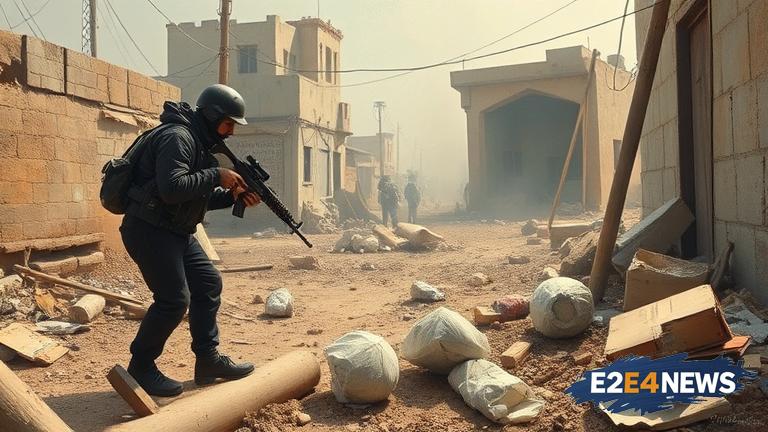The ongoing conflict between Israel and Gaza has resulted in a severe humanitarian crisis, with reports of starvation deaths and widespread destruction. Journalists on the ground have been documenting the devastating effects of the war, which has left many civilians without access to basic necessities like food and water. The situation is particularly dire in Gaza, where the blockade has restricted the flow of goods and supplies. Many families have been forced to rely on aid from international organizations, which is often insufficient to meet their needs. The lack of food and water has led to a significant increase in malnutrition and related health problems. Children and the elderly are particularly vulnerable, with many suffering from starvation and related illnesses. The conflict has also resulted in significant damage to infrastructure, including homes, schools, and hospitals. Many people have been forced to flee their homes and seek shelter in overcrowded and unsanitary conditions. The psychological toll of the conflict should not be underestimated, with many people experiencing trauma and anxiety. The international community has been criticized for its response to the crisis, with many arguing that more needs to be done to address the humanitarian needs of those affected. The conflict has also raised concerns about the role of journalism in reporting on humanitarian crises. Many journalists have risked their lives to report on the conflict, often in difficult and dangerous conditions. Despite the challenges, journalists continue to play a crucial role in highlighting the human cost of the conflict and advocating for those affected. The situation in Gaza is a stark reminder of the need for a peaceful resolution to the conflict, one that prioritizes the needs and rights of civilians. The international community must work together to address the humanitarian crisis and find a lasting solution to the conflict. This includes providing adequate aid and support to those affected, as well as working to address the underlying causes of the conflict. The use of social media has also played a significant role in raising awareness about the conflict, with many people using platforms like Twitter and Facebook to share information and advocate for those affected. However, the spread of misinformation and propaganda has also been a concern, with many false or misleading reports circulating online. It is essential to rely on credible sources of information and to verify reports before sharing them. The conflict has also highlighted the importance of protecting journalists and ensuring their safety while reporting on humanitarian crises. Many journalists have faced harassment, intimidation, and violence while reporting on the conflict, and it is essential that their rights are protected. The situation in Gaza is a complex and multifaceted one, and it requires a comprehensive and nuanced response. The international community must work together to address the humanitarian crisis and find a lasting solution to the conflict, one that prioritizes the needs and rights of civilians. The role of journalism in reporting on humanitarian crises is crucial, and it is essential that journalists are able to report safely and accurately on the situation. The use of social media has also played a significant role in raising awareness about the conflict, and it is essential to use these platforms responsibly and to rely on credible sources of information. The conflict has resulted in a significant humanitarian crisis, with many people in need of aid and support. The international community must work together to address the crisis and find a lasting solution to the conflict. The situation in Gaza is a stark reminder of the need for a peaceful resolution to the conflict, one that prioritizes the needs and rights of civilians. The conflict has also raised concerns about the role of journalism in reporting on humanitarian crises, and the importance of protecting journalists and ensuring their safety while reporting. The use of social media has also played a significant role in raising awareness about the conflict, and it is essential to use these platforms responsibly and to rely on credible sources of information. The conflict has resulted in significant damage to infrastructure, including homes, schools, and hospitals. Many people have been forced to flee their homes and seek shelter in overcrowded and unsanitary conditions. The psychological toll of the conflict should not be underestimated, with many people experiencing trauma and anxiety. The international community has been criticized for its response to the crisis, with many arguing that more needs to be done to address the humanitarian needs of those affected. The conflict has also highlighted the importance of addressing the underlying causes of the conflict, including the blockade and the occupation. The situation in Gaza is a complex and multifaceted one, and it requires a comprehensive and nuanced response. The international community must work together to address the humanitarian crisis and find a lasting solution to the conflict, one that prioritizes the needs and rights of civilians.
